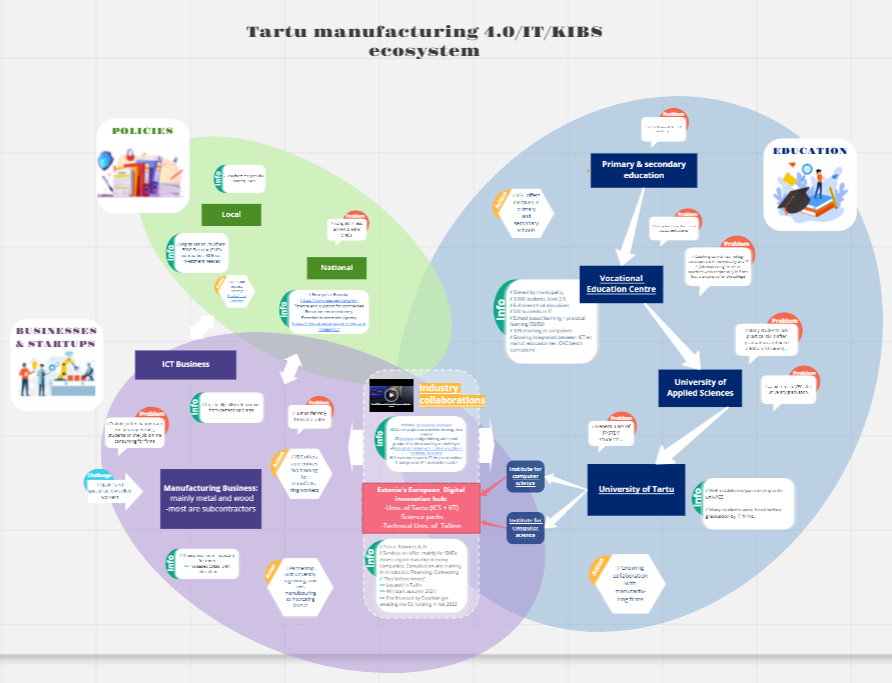
An article by AS TRANSFER Ad-hoc Expert, Alison Patridge.
What can cities do to facilitate partnership brokering in an Industry 4.0 context?
Alison Partridge, ad-hoc expert of our AS TRANSFER project, wrote an article about what activities can cities do to facilitate partnership brokering in an Industry 4.0. context. Below, a short extract from the article:
Globalisation and digitalisation have created a need for companies to combine their resources to answer to the rapid changes that they bring with them. Resorting to partnership brokering as a result to respond might be a good answer but, what can cities do to facilitate this?
Ecosystem mapping
Core task that needs to be done at the beginning to understand the system. By mapping ecosystems, you can learn where the value is, identify stakeholders, intermediaries, knowledge institutions and manufacturers, and then create a strategy. This task requires awareness because not all businesses will be up for the combined strategy.

Patience and Flexibility
Each partner is different in regard to connections, knowledge or skills as well as cultural aspects or delivery time that they bring with them. They need to be patient and flexible in order to success in their approach.
Share successes at all levels
The public sector, businesses…should know what can be achieved. Both Bilbao’s As Fabrik and Liverpool’s LCR4.0 found that through an agnostic approach – that didn’t limit the scope of innovation – the strategy worked best, adding to the depth and breadth of opportunities.
Facilities and equipment of virtual prototyping - digital sandpits as some call them
Cities can offer these and play a role in encouraging better use of local capabilities and facilities by linking what companies need with what digital knowledge providers have. Cities could also provide topics or challenges for hackathons or similar events (prizes, workspace, pilot technologies) which act as ‘magnets’ to local ecosystem stakeholders.
All in all, partnership brokering is based in meetups, discussions about experiences and creating networks that result in them. Companies increase their knowledge and adapt their strategy, resulting in innovation and being competitive.

